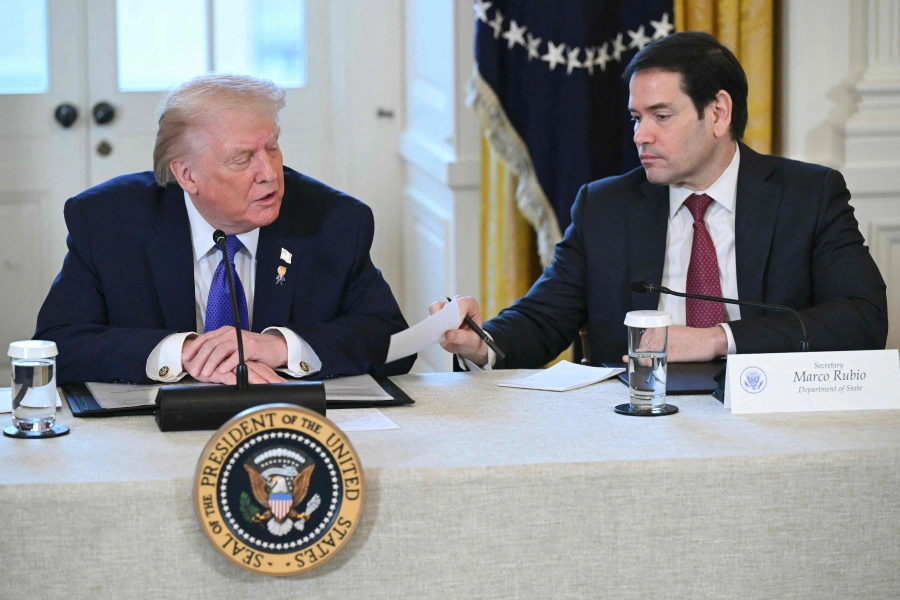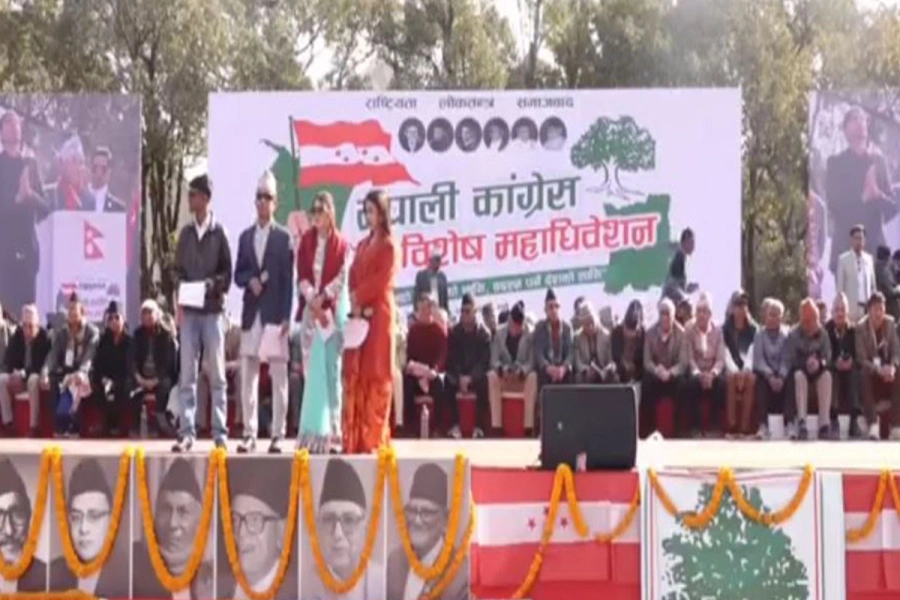KATHMANDU, Jan 7: “The party that wins the popular vote should be allowed to run the government for five years. We need inclusiveness of all castes, religions and cultures. Without compromising on this, if a party does not get to govern for five years—even if the Nepali Congress receives the same number of votes as in 1960 or 1991—there will be a problem. In that case, we will need to change the electoral system.”
This statement was made by Nepali Congress (NC) General Secretary Gagan Kumar Thapa during an orientation program organized by the Gandaki provincial committee of the party on Saturday. Addressing the program for about 15 minutes, Thapa expressed the view that the current problems stem from the electoral system. He emphasized that the constitution would be amended to ensure its success while upholding republicanism, federalism and inclusiveness.
This is not the first time NC General Secretary Thapa has raised this issue. Previously, another General Secretary, Bishwa Prakash Sharma, also argued that the party with the popular vote and most seats should govern for five years. Sharma, who recently returned after climbing the Himalayas, stated in an interview that the largest party, based on the number of seats and popularity, should lead the government, while other parties should remain in the opposition. “If the party does not get a simple majority, let us allocate 25-30 additional seats to the party in line with the winner-takes-all theory,” Sharma said. “We should register a list of experts with the Election Commission in advance to form a strong Prime Ministerial team.”
General Secretary Thapa explained that although he advocates for an inclusive electoral system, the primary reason for this demand is the lack of coalition culture among political parties and their leaders. He observed that coalition governments often face instability, with Prime Ministers needing repeated votes of confidence and ministers constantly defending their positions by asserting that their government would not collapse.
Revised interest rate corridor system introduced

While Thapa is correct in highlighting this issue, the question arises: Who created this situation? Proposed amendments alone are less likely to address the problem that the General Secretary duo wants to address.
The government formed after the provincial and House of Representatives elections in November, 2022, faced similar instability. But is the electoral system solely to blame? Or are political parties and their leaders complicit due to their power struggles and self-serving tactics?
In neighboring India, democracy was established just a few years before Nepal. Coalition governments have functioned successfully, both in the past and present. Former Prime Minister Manmohan Singh stabilized India's economy through a coalition government, while the current Prime Minister Narendra Modi continues to govern within the coalition framework, regardless of majority status. India has risen to become one of the world's leading nations without altering its electoral or governance systems.
Meanwhile, Nepal has repeatedly changed both its electoral and governance systems. Although the constitution drafted by the Constituent Assembly has laid the foundation for governance, is the NC focusing on electoral reforms at the expense of addressing economic development and good governance?
Isn't blaming the electoral system merely a way to mask the weaknesses of political parties and their leaders? Following the political changes of 1960 and 1990, Nepal did not have a mixed electoral system like today. In the first general election of 1960, the people gave NC a two-thirds majority.
However, in 1961, the King overthrew the elected government and assumed power himself. Was the conflict between NC leaders BP Koirala and Subarna Shamsher Rana a factor in King Mahendra's ambition to rule directly, or was it the electoral system? If Mahendra had not gained the support of power-hungry leaders like Tulsi Giri and Bishwabandhu Thapa, would the BP Koirala-led government have been overthrown?
If the NC and leftist parties had united, would the Panchayat system have lasted 30 years? When the NC and leftists joined forces in 1990, the Panchayat system collapsed within months, and democracy was restored. In the 1991 general election, the people once again gave the NC a majority. However, internal strife within the NC led to the collapse of the government just three years later, resulting in midterm elections. Was this the fault of the electoral system?
Internal discord within the NC caused parliamentary deadlock and rampant corruption, fueling the Maoist insurgency. In the 1999 election, the people again gave the NC a majority. Yet, the Girija Prasad Koirala-led government and later the Bhattarai-led government both fell—not due to interference from the UML or other parties, but because of the NC's internal disputes. Similarly, Sher Bahadur Deuba's decision to dissolve parliament in 2002 and call for midterm elections stemmed from the NC’s infighting, not alliance issues.
After the 2006 movement, the country adopted a mixed electoral system starting with the first Constituent Assembly election in 2008. When the UML and Maoists formed an alliance in the 2017 general election, the people gave the two parties a clear majority, reflecting their desire for stability and development. However, the power struggle within the then-CPN, exacerbated by the COVID-19 pandemic, derailed governance.
Was the electoral system responsible for the unconstitutional dissolution of the House of Representatives, or were political leaders to blame? When exercising Articles 76 (1) to (5) of the constitution, isn't it evident that political parties and their leaders, rather than the electoral system, are at the root of Nepal’s governance challenges?







































